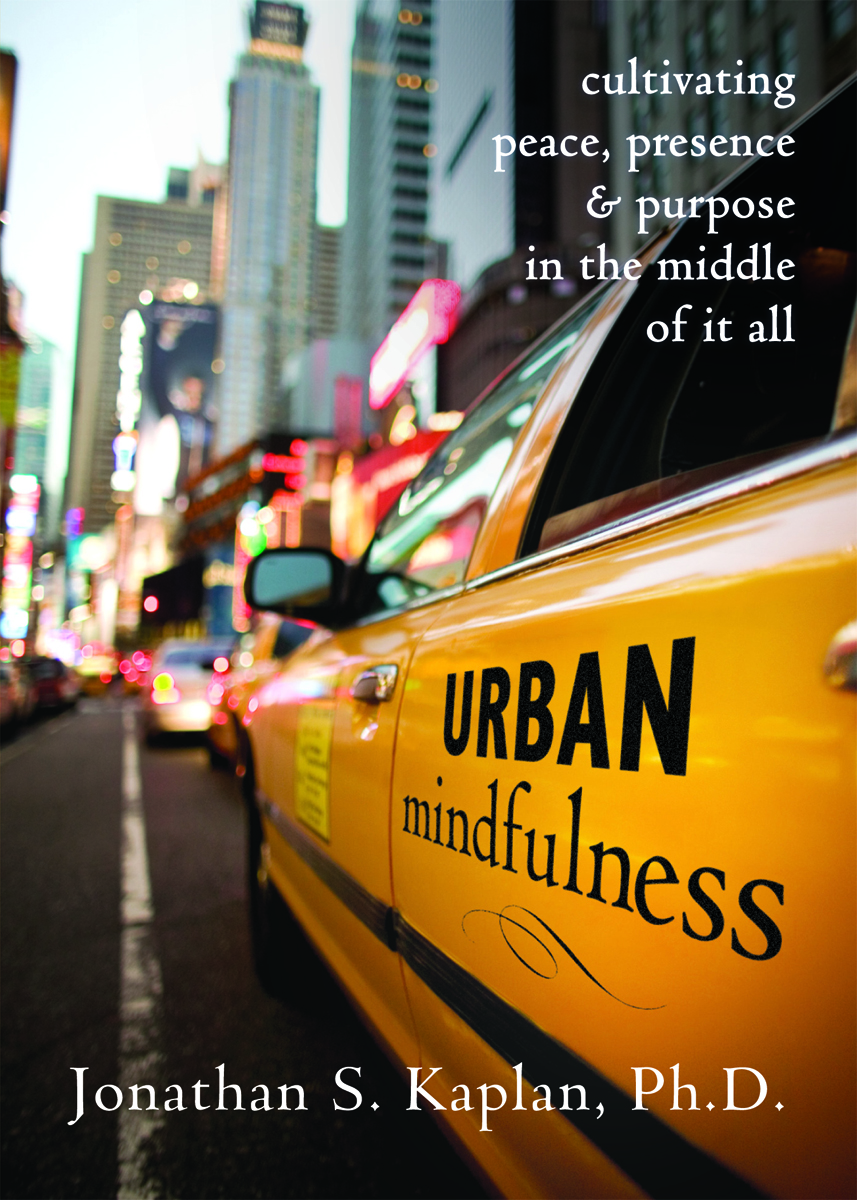Wednesday
Nov032010
Urban Mindfulness--The Book!--Has Been Released
 Wednesday, November 3, 2010 at 12:56PM
Wednesday, November 3, 2010 at 12:56PM 
Dear friends, colleagues, readers, and fans,
I am excited to announce the release of my book, Urban Mindfulness: Cultivating Peace, Presence, and Purpose in the Middle of It All! As a clinical psychologist in New York, I've seen many of us struggle to manage stress while living and working in the city. The traffic, noise, fast pace and other factors can undermine our happiness and well-being.
My book helps to solve this problem by inviting us to be here mindfully--paying attention to our thoughts, emotions, and sensory experiences as they arise from moment-to-moment. The book is divided into 5 sections, each devoted to where you would practice mindfulness (i.e., at home, at work, on the go, at play, or anytime, anywhere). Within each section, there are 10 chapters, which provide practical tips (e.g., how to meditate on the subway), thoughtful reflections (e.g., questioning why you're here in the city), and fun exercises (e.g., being a tourist in your own neighborhood).
I wrote this book to appeal to two groups of people: (1) folks who are unfamiliar with mindfulness; and (2) those of us who strive to practice mindfulness regularly while being in the city. Maybe you’ve heard about mindfulness, and want to learn more about it. Maybe you regularly do yoga, get massages, or go on retreats, only to find your calm center unravels as soon as you hit city traffic. Maybe you’ve given up on trying to meditate in context of your busy, urban existence, but really want the sense of peace it can provide. Maybe you’re a healing professional who has been encouraging your clients to be more mindful. If any of these descriptions are applicable, this book is for you (and your friends, family members, patients, etc.). To put it another way, this book is about practicing mindfulness beyond meditation or psychotherapy. Sometimes, I joke that Urban Mindfulness is about taking the practice “off of the cushion” and “off of the couch”, and instead “taking it to the streets." Literally.
Professionally, my book has been well-received by many experts on mindfulness, including Drs. Christopher Germer, Robert Leahy, Elizabeth Roemer, and Jeff Brantley. Sharon Salzberg, co-founder of the Insight Meditation Society and author of Lovingkindness, found the book to be “an excellent guide.”
Some of you might know that I have been writing on this topic for about 2 years. I founded UrbanMindfulness.org in 2008, and write for PsychologyToday.com. Over 30,000 people have been reading these blogs annually, and the number has been growing steadily. This shows that there is clearly an interest--and need--in revising our experience of life in the city.
So, please check out Urban Mindfulness: Cultivating Peace, Presence, and Purpose in the Middle of It All, which is available for purchase everywhere (Amazon, Barnes &Noble, New Harbinger, and local bookstores). Its cover price ($15.98) is about what you would pay for one yoga class in most major cities, and you’re likely to get just as much--if not more!--from reading my book. You can also review the many free resources available at UrbanMindfulness.org. In addition, I invite you to become a friend of Urban Mindfulness on Facebook, follow me on Twitter, subscribe to blog’s RSS feed, and view the Urban Mindfulness channel on YouTube. Over the next month, I’ll be uploading some videos of “mindfulness in action,” including a demonstration of subway meditation and “Mindfulness vs. Road Rage.”
If you’d like to support Urban Mindfulness--the book, blog, organization, or practice--please share this post with your friends, family, and colleagues. Thank you very much for your time and consideration.
Sincerely,
Jonathan S. Kaplan
tagged  book
book
 book
book 




